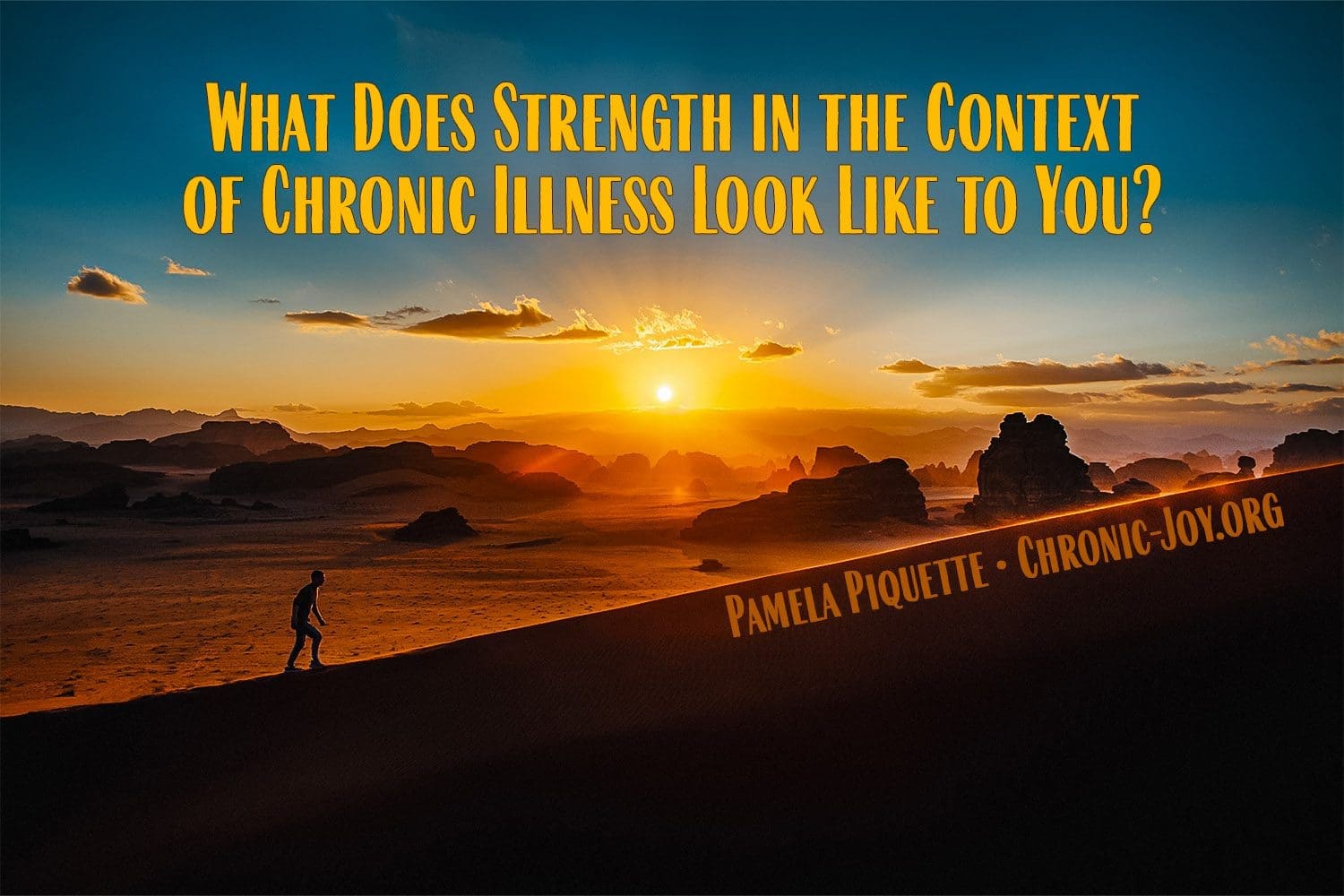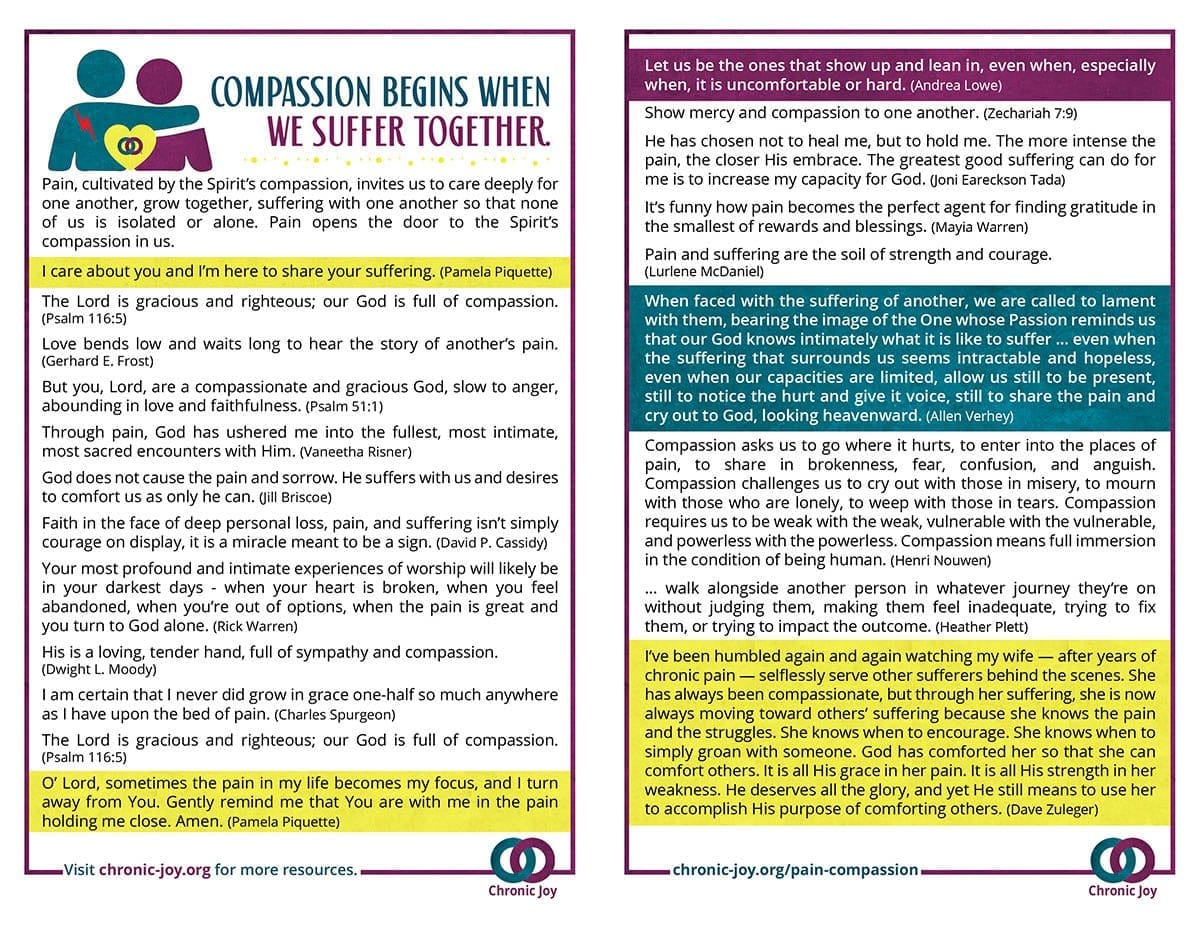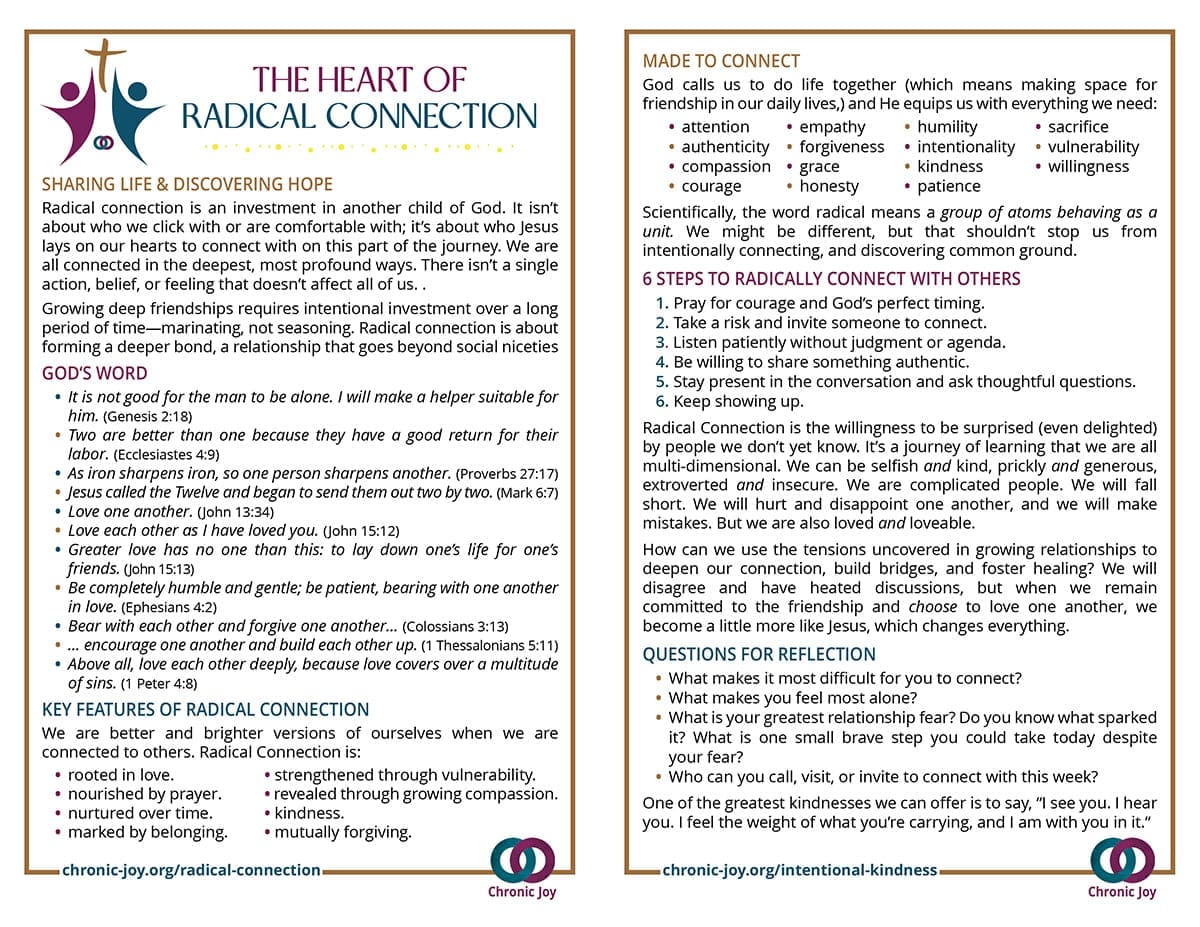
What does strength in the context of chronic illness look like to you? (Pamela Piquette)
EXPECTATIONS AND UNCERTAINTY
I’m not sure what I expected from a life with chronic illness, but if I’m honest, I hoped I would have something valuable to offer – like words of encouragement, answers about how to live well, a positive attitude, hope, or joy oozing from my soul.
Yet, I have been assaulted on many fronts in the last two months. Life with chronic illness has taken on new dimensions and depths, and instead of insights, I’m filled with more questions and uncertainty.
I refer to these as the 3-C’s: compassion, complaining, and comparison.
COMPASSION HAS A COST
Compassion has a cost. I often believe I’m OK with accepting the price of being there for others, of offering kindness and support, of being like the Energizer Bunny – going, going, going – of ignoring the pain and exhaustion of body and mind to appreciate the moments of service and love I offer to others. However, when my body, mind, and spirit quit, and the pain is too much, I’m left wondering, “Was I really willing to pay the cost?”
COMPLAINING OR AUTHENTIC EXPRESSION
Complaining is what I believe I’m doing when I express that I’m unwell or in pain. I think most people genuinely care but lack true understanding. The old saying, “You’ve got to walk a mile in another person’s shoes,” seems all too accurate, and I’m left wondering, “Should I be silent or authentic?”
THE UGLY TRAP OF COMPARISON
Comparison is another ugly trap I find myself in. I minimize this life with chronic illness, pain, and limitations, and sometimes others do too, suggesting that I should be grateful “because things could be so much worse.” I could have a more debilitating ailment. But a good friend once told me, “Pain is pain.” My pain is real. And if that’s true, is comparison really helpful?
A family member, also chronically ill, is experiencing more frequent flares while trying to lead a “normal” life. Yesterday, my dad started his first round of radiation and chemotherapy. My mom was suddenly thrust into the leadership role in their marriage. A dear friend won’t, or maybe can’t, respond to questions about how she’s feeling because it’s simply too hard for her to share her difficult reality right now.
I ask God why all these things are happening, then almost immediately pause and wonder, “But why not?” We live in a fallen world. Scripture tells us, “In this world, you will have trouble.” (John 16:33a)
I ask God why I can’t simply be joyful. Some pray, “Search me, O God,” but today, I’m afraid of the other suffering God might allow. So, instead, I’m asking myself, “What does true strength look like in the context of chronic illness?”
Therefore encourage one another and build one another up, just as you are doing. (1 Thessalonians 5:11)
GRATITUDE AND CONNECTION
Two words keep creeping into my thoughts: gratitude and connection.
When days are difficult, I find I’m compelled to say “thank you” for simple acts of kindness—someone holding the elevator door, a receptionist offering a warm welcome, a nurse or a doctor patiently answering my questions.
Those two simple words changed my attitude, softened my heart, and began to shift my perspective.
Perhaps it isn’t answers that are necessary. Perhaps what really matters is sharing life, whatever our circumstances.
“What does strength in the context of chronic illness look like to you?
PRAYER
Father, help us when we fall into the traps of comparison. Please bring people into our lives with whom we can share safely and not feel like we’re complaining. May we offer whatever compassion we can, even though it may have a cost, and accept the same from others. In Jesus’ name, Amen.
QUESTIONS FOR REFLECTION
- What does strength in the context of chronic illness look like to you?
- Are you ever afraid to share how you are really feeling with others? How would it sound to share authentically with someone you trust–try to verbalize it.
- What are some of the questions weighing on your heart?
INVITATION
Take some time to read through Compassion Begins When We Suffer Together, and see if it prompts some ideas of how you can share with others.


Pamela Piquette
Executive Director and Co-Founder of Chronic Joy®
Pamela, a leader and a visionary following God's call to inspire those affected by chronic illness, mental illness, and chronic pain, believes that every precious life impacted by illness is both vital and purposed.
Pamela is a wife of more than 35 years, the mom of three married children, and a grandma of six. She is diagnosed with chronic migraines and other chronic conditions. She enjoys baking sourdough bread and chocolate chip cookies, drinking hot tea, being outdoors, and reading (almost always more than one book at a time).

Compassion Begins When We Suffer Together
Pain, cultivated by the Spirit’s compassion, invites us to care deeply, grow together, and suffer with one another so that none of us is isolated or alone. Pain opens the door to the Spirit’s compassion in us.

The Heart of Radical Connection
Radical connection isn’t about who we click with or are comfortable with. It’s about forming deep relationships and investing in the people Jesus lays on our hearts to connect with on this leg of the journey.

Recent Comments